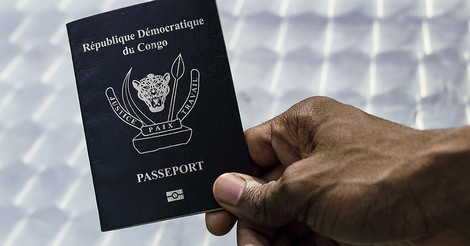Your podcast discovery platform
Curious minds select the most fascinating podcasts from around the world. Discover hand-piqd audio recommendations on your favorite topics.

piqer for: Global finds Technology and society
Prague-based media development worker from Poland with a journalistic background. Previously worked on digital issues in Brussels. Piqs about digital issues, digital rights, data protection, new trends in journalism and anything else that grabs my attention.
Biometric Passports Scam In The Democratic Republic Of The Congo
Congo's biometric passports cost $185 each. For the same amount, a person living in Kinshasa could buy approximately 840 eggs, 185 loafs of bread or 74 liters of milk. These are just estimations, but I think they paint a picture of how pricey this purchase is. Just to compare, a UK passport costs around $90 and a US passport $110.
It’s not just about the price, though. Reuters’ investigation uncovers that most of the money from the sale of passports does not even go to the state, which receives only 35% out of $185. Almost the same amount goes to a private company LRPS in the Gulf, owned by a relative of President Joseph Kabila, as Reuters' sources say. Through annual sale of passports, the company could earn as much as $120 million a year.
President Joseph Kabila, who was supposed to step down at the end of 2016 after completing a second presidential term of office, and the people from his immediate surrounding, denied to comment on Reuters’ revelations. It seems that they may want to wait the affair out.
“Whether or not Kabila stays in power, LRPS looks set to continue to make money from every passport issued in Congo. According to Article 14 of the contract for the deal, the agreement remains valid even if there are ‘institutional changes’ in the country,” writes Reuters.
The long read is a good example of impactful journalism. Following Reuters' reporting, DR Congo opposition and a Congolese rights group called for criminal investigation into the passport deal.
